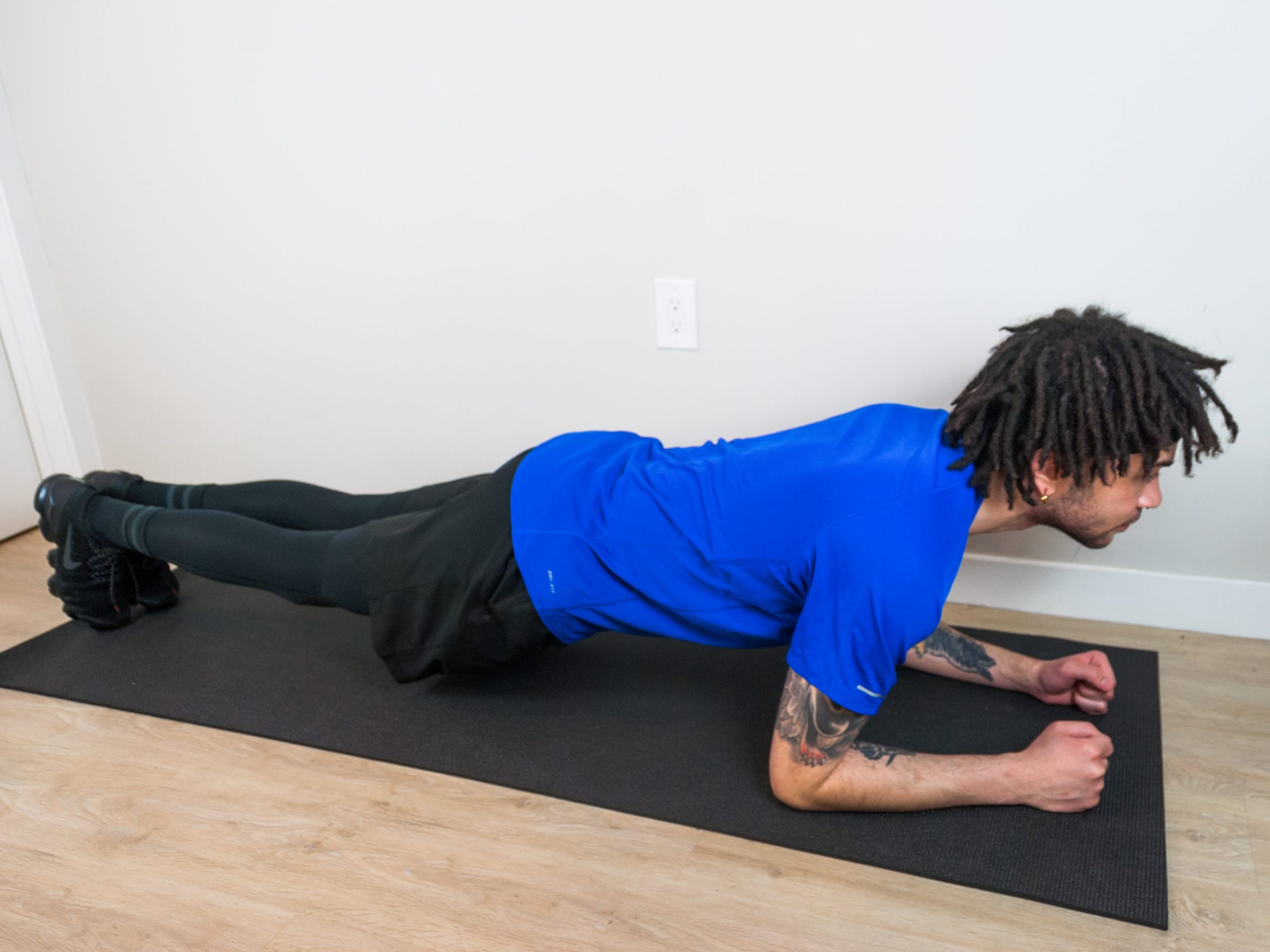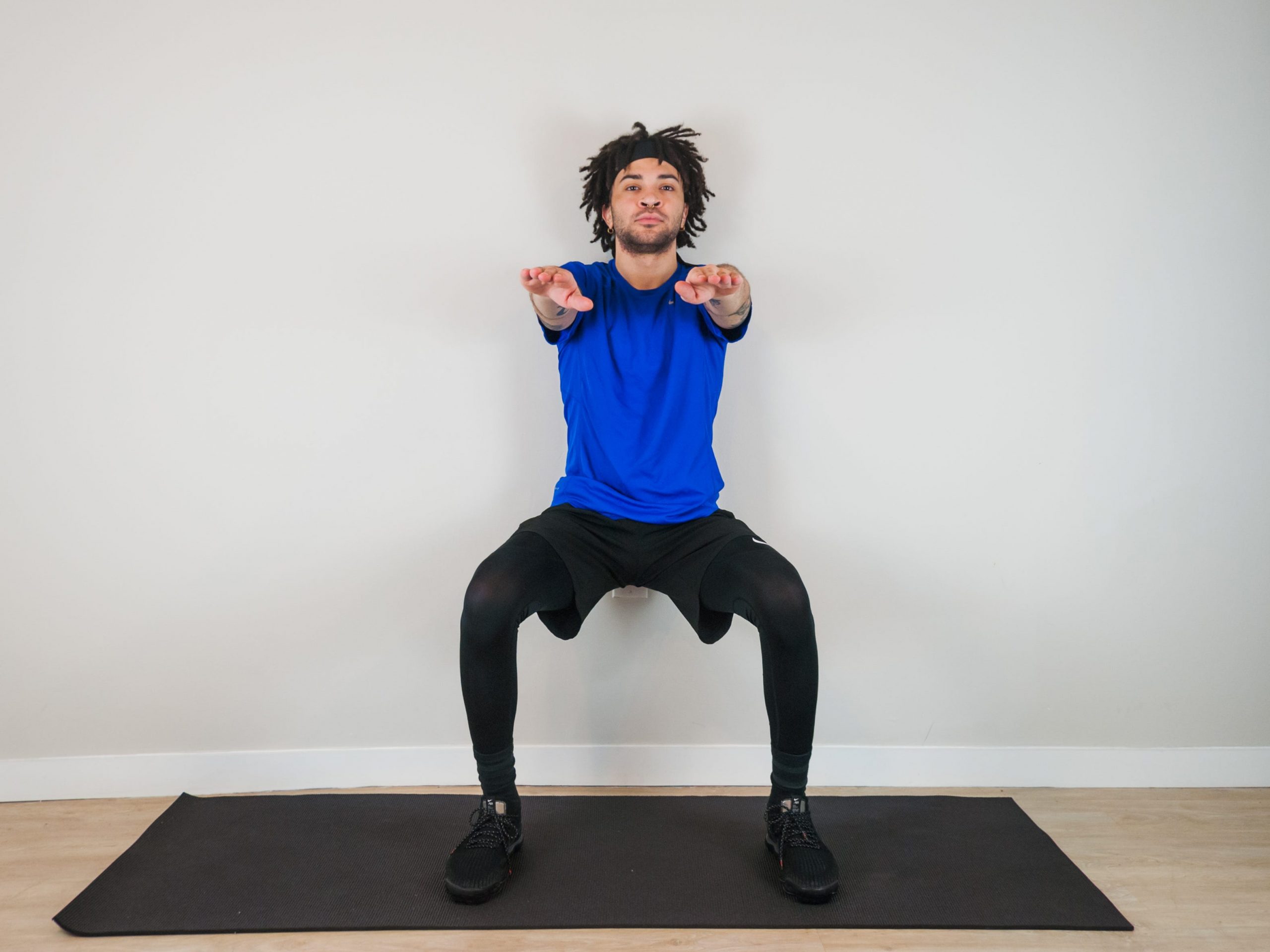
- Isometrics are exercises like planks and wall sits that strengthen muscles and tone the body.
- Because they are low-impact, isometric exercises help injury recovery and relieve joint pain.
- Isometrics don't require equipment so you can do them just about anywhere, even on a plane.
- Visit Insider's Health Reference library for more advice.
Isometrics are low-impact exercises that you can do just about anywhere, whether it's in your home, office, or at the park.
These exercises are designed to strengthen your muscles by holding poses like a plank, squat, or wall sit for at least six seconds at a time.
By holding a pose, you're tensing the muscles and making them work overtime, which can strengthen them when done regularly. Isometrics can be especially impactful if you do them in combination with traditional weight-lifting or resistance training.
You may even be familiar with many of these poses since they're common to yoga, barre, and pilates.
Here's who can benefit most from isometrics as well as two exercise examples you can easily do at home.
Health benefits of isometric exercises
Anyone can benefit from isometrics. But they are especially useful for people recovering from surgery or an injury that's required long periods of rest.
That's because during long periods of rest muscles atrophy — become smaller and weaker — and therefore need to be worked back into shape slowly, says Chris Kolba, physical therapist and certified strength and conditioning specialist at The Ohio State University Wexner Medical Center.
Isometric exercises allow people to target areas that need to be strengthened without straining weak or injured joints, which makes them good for people who have suffered knee injuries, for example. Because the injured knee joint is restricted from movement but the muscle is still worked through the tension.
Isometric exercises do come with their limits.
"It only builds strength in a very limited range of motion — about 15 degrees on each side of the joint — so its application to building strength and function is limited," says Kolba.
Isometric exercises you can do at home
You can do isometrics at home because the only equipment you need is your own body weight and, sometimes, a stable wall. Here are two examples of popular isometric exercises.
Plank hold

Planking works your midsection, shoulders, and quad muscles of your legs. It should not be performed by people with shoulder or neck injuries.
- Lay down on a yoga mat on your belly and then lift yourself up horizontally onto your toes and forearms.
- Flex your abs, core, and glutes and hold that flex for 6 to 15 seconds.
Wall sit

This exercise strengthens the legs, especially the glutes, quadriceps, and hamstrings. This exercise will strengthen the hips as well and help with balance.
- Stand about 2 feet, or so, from the wall.
- Lean back so your back is flat against the wall and slide down slowly until your thighs are parallel to the ground in a sitting position while pressing against the wall.
- While in this sitting position, flex your legs tightly and hold this position for 6 to 15 seconds.
Insider's takeaway
Kolba says that isometric exercises can be used in the office for a quick workout or even in a confined place like a plane.
For example, he suggests that certain isometrics — like hand-wrist exercises or flexing and holding your abdominal muscles while sitting — can be done on a plane to get the blood moving in a confined space.
Wherever you perform them, isometrics are an easy way to build muscle and tone your body. Do them consistently a few times a day, several days a week, and after several months you should feel stronger and may even see a toner you.
